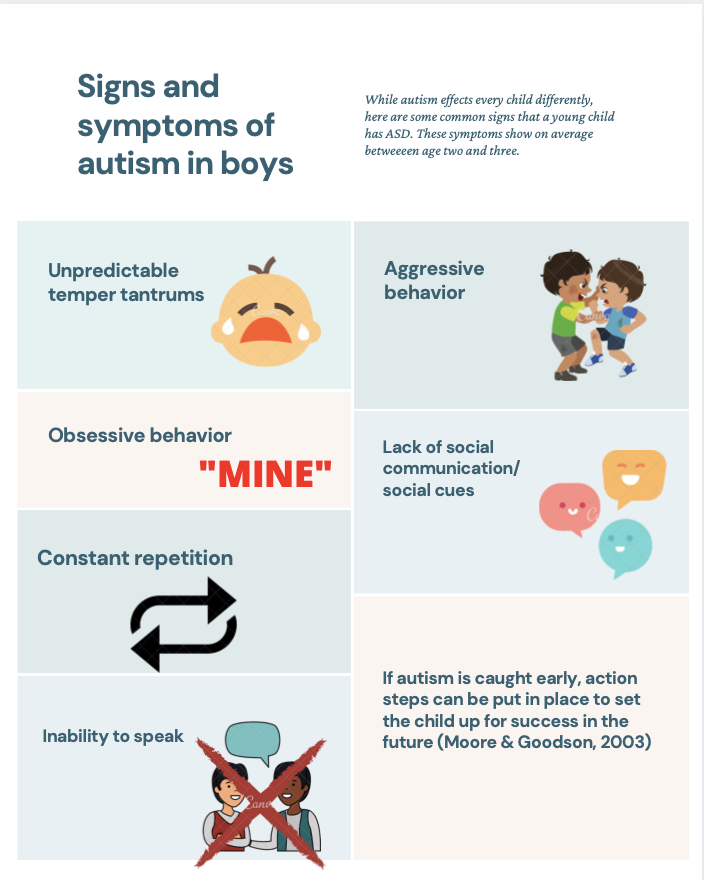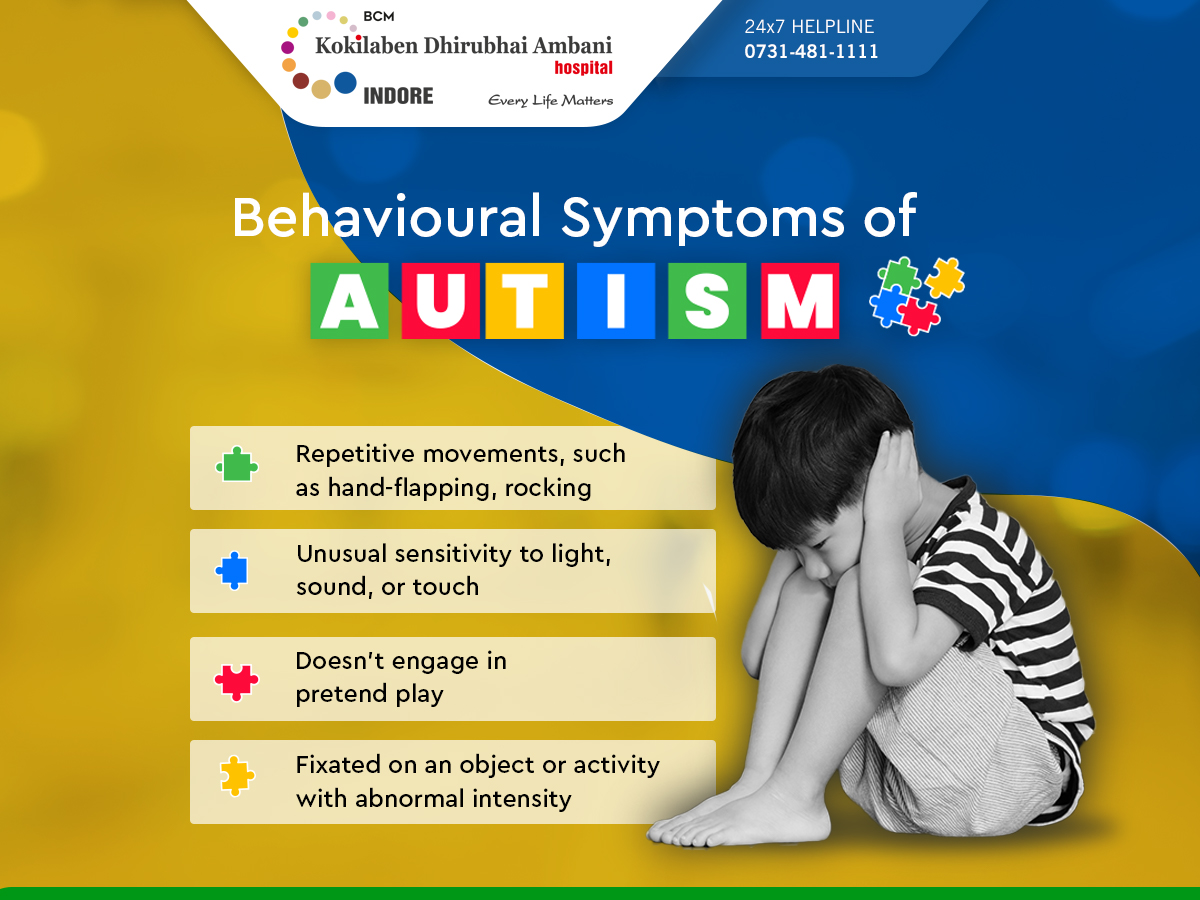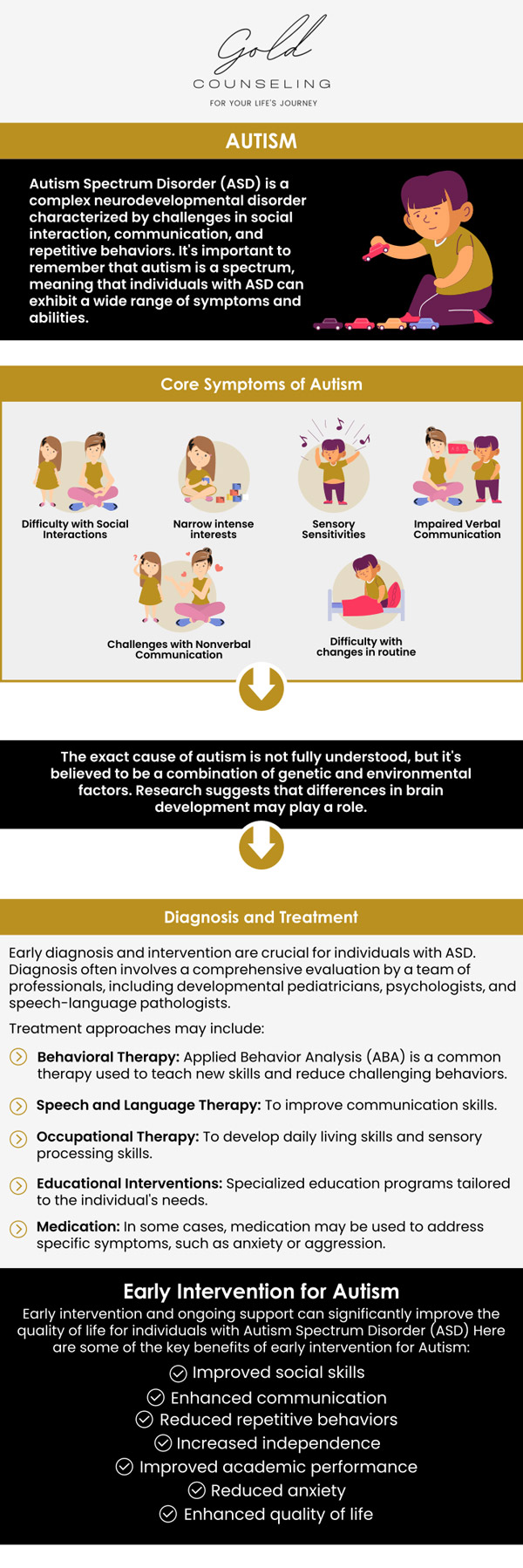Recognizing the Influence of Behavioral Autism on Life and Social Interactions
You might not recognize just how deeply behavioral autism impacts life and social interactions. People on the spectrum frequently navigate a globe full of interaction obstacles and sensory overload. These difficulties can result in aggravation and isolation, affecting their partnerships and overall health. Recognizing these nuances is important for fostering helpful environments. What techniques can we apply to develop more meaningful connections and inclusive rooms? The answers could shock you.
Defining Behavior Autism and Its Features
Behavioral autism, frequently described as autism range problem (ASD), incorporates a variety of conditions defined by challenges in social interaction, communication, and repeated behaviors. You may notice that people with ASD commonly battle to interpret social hints, which can result in misunderstandings in discussions. They might discover it difficult to develop eye get in touch with or participate in tiny talk, making social circumstances feel overwhelming.
Communication difficulties can materialize in various means, from delayed speech advancement to a choice for making use of fewer words. Recurring actions, such as hand-flapping or shaking, can act as coping devices to handle stress and anxiety or sensory overload. These characteristics can exceptionally affect day-to-day life, making it vital for you to comprehend and sustain those with ASD. By identifying these qualities, you can promote a setting that promotes acceptance and motivates reliable interaction, assisting individuals with autism grow in their daily interactions.
The Range of Autism: Recognizing Variability in Habits
Autism range condition (ASD) isn't a one-size-fits-all medical diagnosis; it differs commonly amongst people. You may experience people that are highly verbal and engage quickly in discussions, while others could prefer solitary activities or interact non-verbally.
Additionally, the way people with ASD reply to sensory input can differ greatly; some could be bewildered by loud noises or intense lights, whereas others prosper in boosting settings. The spectrum likewise consists of differences in social communications; some people might have a hard time to translate social signs, while others navigate social settings with relative ease. Understanding this irregularity is vital, as it helps you appreciate each person's one-of-a-kind experience and tailor support to their details needs, promoting an extra inclusive atmosphere for everyone.
Communication Difficulties Faced by Individuals With Autism
When you interact with individuals on the autism range, you might see their special interaction difficulties. They often encounter troubles with both nonverbal and verbal signs, which can influence their social communications. Comprehending these obstacles is crucial for cultivating much better connections and support.

Verbal Communication Problems
Lots of people on the autism spectrum experience spoken communication difficulties that can substantially influence their daily communications. Your pace, quantity, or tone might not straighten with social assumptions, triggering others to misunderstand your intentions. Identifying these difficulties can aid you and your support network establish methods to boost interaction and promote much better connections with others in your everyday life.
Nonverbal Communication Barriers
Spoken interaction isn't the only challenge individuals on the autism spectrum face; nonverbal communication barriers can be simply as considerable. You could locate it difficult to translate body language, faces, and eye contact, which are essential for efficient communication. These obstacles can bring about misconceptions or misinterpretations of social cues, making communications really feel complex or overwhelming. You might battle to reveal your very own emotions with nonverbal methods, leaving others uncertain of your sensations or purposes. This disconnect can develop sensations of seclusion and disappointment. Acknowledging these barriers is important for fostering understanding and compassion in your interactions. By addressing nonverbal communication, you can find methods to improve your social experiences and boost your overall lifestyle.
Social Interaction Influences
Social communications can frequently feel frustrating as a result of the one-of-a-kind communication challenges dealt with by individuals with autism. You could have problem with analyzing social hints, making it tough to recognize mockery or body movement. This can lead to misunderstandings or awkward minutes in conversations. In addition, initiating and preserving discussions may feel difficult, causing anxiousness in social scenarios. You may like structured environments, making spontaneous interactions awkward. It's also usual to experience difficulty in engaging in small talk, which can prevent developing brand-new relationships. Acknowledging these difficulties can help you find approaches to improve interaction, such as exercising social skills in risk-free settings or utilizing visual help - Autism Spectrum Therapies. Comprehending your requirements allows you to browse social interactions with better self-confidence and ease.
Social Interaction and Partnership Structure in Autism
While building connections can be challenging for individuals with autism, recognizing their one-of-a-kind viewpoints and interaction designs can foster purposeful connections. You may see that numerous individuals on the spectrum like straight communication and may have problem with social cues or tiny talk. By being simple in your communications, you can assist produce a setting where they really feel comfy.
Take the time to pay attention and observe just how they share themselves. This understanding can assist you in steering conversations better. Engaging in shared interests can likewise work as a bridge to deeper connections. Whether it's a hobby, a preferred program, or a common interest, these usual strings can open doors to friendship.
Daily Life Regimen: Browsing Challenges and Strategies
Maneuvering every day life routines can be especially challenging for individuals with autism, specifically when unanticipated changes take place. You could find convenience in having a structured timetable, as it assists you expect what's next. When disturbances occur, it's regular to feel nervous or overwhelmed. To browse these challenges, take into consideration carrying out aesthetic schedules or lists. These devices can supply clarity and peace of mind.
Establishing a routine that includes sensory breaks can likewise be useful. You can intend short breaks throughout your day to recharge. It's necessary to check here connect with those around you, letting them understand your requirements and preferences. This assists create an understanding atmosphere.
Lastly, technique mindfulness techniques to handle stress and anxiety and anxiety. Simple breathing website workouts or grounding methods can make a significant difference. By incorporating these strategies, you can enhance your day-to-day regimen and reduce disruptions, making life really feel extra convenient.
Staminas and Abilities of Individuals on the Autism Range
Recognizing day-to-day life regimens is simply one aspect of the autism experience. Many individuals on the autism range possess amazing staminas and abilities that set them apart.
Additionally, your memory skills frequently shine, specifically in areas of passion. Aba Therapist. This propensity for keeping details can make you a useful resource in fields like technology, scientific research, or art. You might also show solid aesthetic thinking, enabling you to visualize intricate principles and fix troubles creatively
Furthermore, your distinct perspective on the world can cultivate compassion and understanding in others, improving social interactions. Welcoming these staminas not only boosts your self-confidence however also helps others value the diverse skills you offer the table.
Developing Inclusive Settings for People With Autism
Producing inclusive settings for individuals with autism starts with making sensory-friendly rooms that accommodate their unique requirements. You can additionally promote chances for social interaction, helping to develop friendships and connections. By making these changes, you'll add to a more welcoming environment for everybody.
Creating Sensory-Friendly Spaces
While designing sensory-friendly rooms, it's vital to mirror on the unique demands of individuals with autism. Integrate quiet zones where people can reenergize and pull back when bewildered. Consist of visual timetables or clear signs to help individuals navigate the area confidently.
Advertising Social Communication Opportunities
Creating sensory-friendly rooms not only addresses individual comfort however also establishes the phase for meaningful social interactions amongst people with autism. Encourage peer mentoring, matching individuals with autism with helpful peers who can lead them through social scenarios. By applying these approaches, you can boost social opportunities, helping people with autism construct friendships and strengthen their social skills in a secure, welcoming environment.

Often Asked Questions
How Can Friends Support Somebody With Behavioral Autism?
You can sustain a friend with behavioral autism by holding your horses, listening actively, and respecting their borders. Participate in activities they enjoy, communicate freely, and create a comfy atmosphere where they really feel valued and comprehended.
What Resources Are Offered for Parents of Children With Autism?
You can discover different sources for moms and dads of children with autism, consisting of support system, academic internet sites, and regional social work. Getting in touch with other moms and dads can additionally offer important insights and shared experiences to aid browse challenges.
Can Behavioral Autism Change Gradually?

Yes, behavioral autism can transform over time. You may discover changes in interaction, social skills, and actions as your youngster expands. Early intervention and assistance often play important roles in these developmental changes.
Exactly How Do Sensory Level Of Sensitivities Influence Day-to-day Live?
Sensory level of sensitivities can make daily experiences overwhelming. You could battle with intense lights or loud sounds, leading to stress and anxiety or evasion. Locating settings that accommodate website your requirements can significantly improve your comfort and overall life.
What Prevail Misconceptions About Behavioral Autism?
You may believe behavioral autism only impacts interaction skills, yet it's even more complicated. Many think people do not have empathy or knowledge, which isn't real. Understanding these mistaken beliefs assists foster approval and support for those on the range.
Behavior autism, frequently referred to as autism spectrum condition (ASD), encompasses a range of conditions defined by difficulties in social communication, communication, and repeated behaviors.Social interactions can usually really feel frustrating due to the distinct communication challenges dealt with by individuals with autism.Creating sensory-friendly spaces not only addresses private comfort but additionally establishes the phase for purposeful social interactions amongst people with autism. Motivate peer mentoring, combining individuals with autism with helpful peers who can guide them through social scenarios. By applying these methods, you can enhance social opportunities, helping people with autism build friendships and enhance their social abilities in a safe, inviting setting.